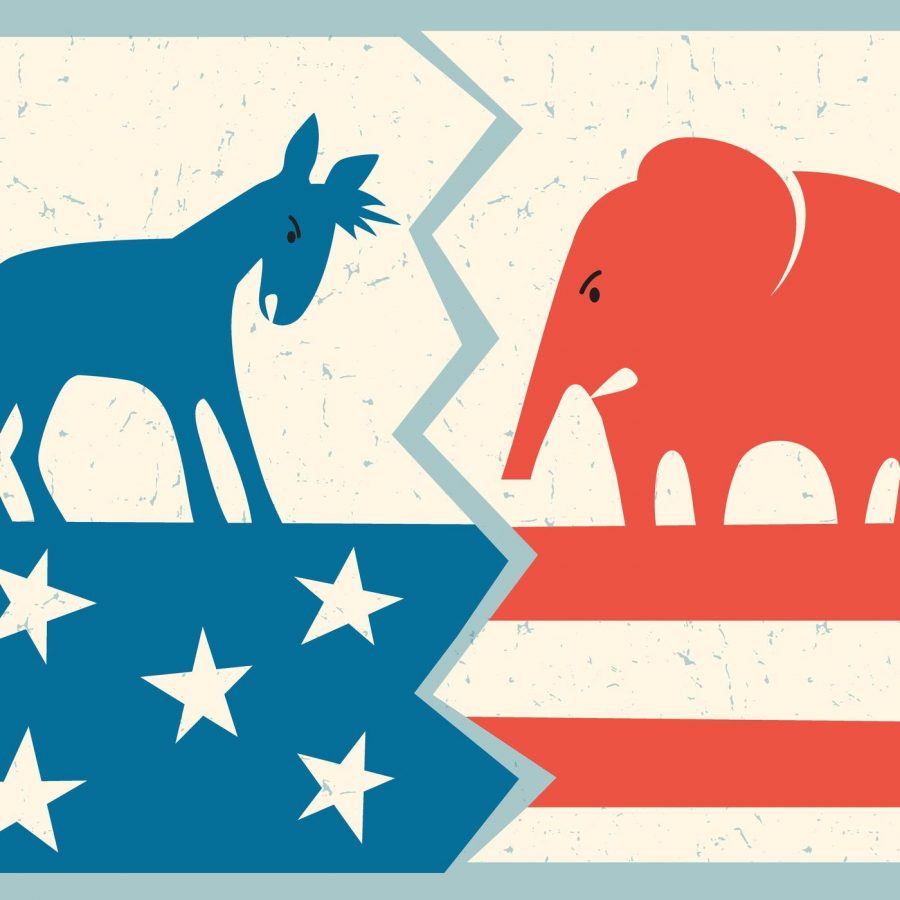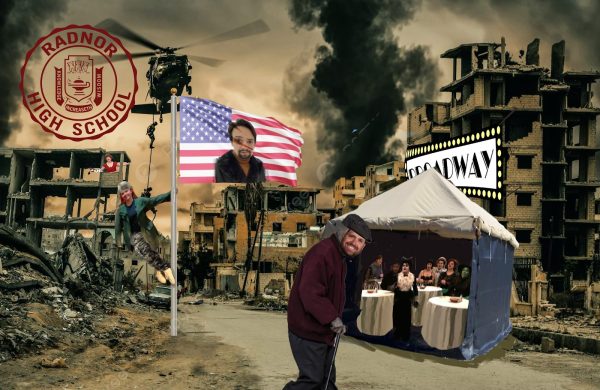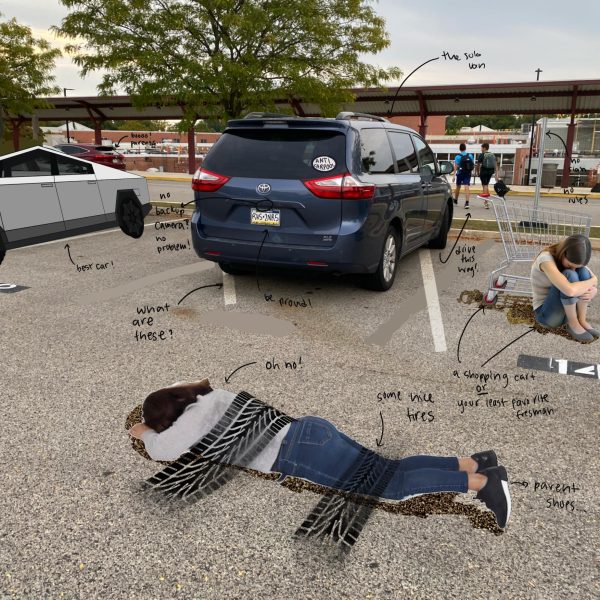From Liberal Snowflakes to Tea Party Conservatives: How we develop our political views
October 7, 2020
Americans have the opportunity every four years to vote for President and thereby decide who will lead our country. This election year the media is flooded with the top stories, ads, and heated arguments about the candidates, but the polarization and partisanship are more vicious than ever. Many adults are challenged especially in this time to defend and support their political beliefs. Teenagers often first experience this passion for politics in middle school and high school. But why do we gravitate to one “side” versus another?
When we are young and trying to make sense of the world, we often look to our parents to guide us. The values they instill in us, both intentionally and indirectly, form the structure for our own beliefs. For many of us, the more we hear a certain point of view, the more we start to agree with it. Sophomore Gerry Atkinson explains, “When I was younger, I didn’t really pay attention to politics, and I thought my world would always remain completely unaffected no matter what I believed.” When Gerry entered middle school, through conversations with his parents, sister and extended family, he began to understand the importance of politics. And although his family gave him the freedom to choose his own beliefs, Gerry adopted similar thinking to the people closest to him. For senior Juan Pablo Moreland, his father’s strong political views shaped his own thinking about important social issues. Juan Pablo’s mom was supportive of his views, he explains, as long as he could back up his own arguments, “intelligently, effectively and without nuance.”
Living outside of the United States as a child or having parents who were born outside of the United States also influences how these students develop their views. For example, senior Grace South spent her early years living in the United Kingdom (UK), which gives her a unique perspective on American political issues. As Grace explained, “ In the UK, I witnessed how many government benefits and institutions like the NHS [National Health System] are extremely important to the working and lower class.” The opportunity Grace had to experience different types of government systems gave her a greater understanding of the benefits and downfalls of each.
Religion also plays a role in how adolescents develop their political views. In every religion, members share certain values, and these beliefs can directly align with conservative or liberal political agendas. For sophomore Gavin Slate, whose parents lean in slightly different political directions, he acquired many of his views from growing up as a Presbeyterian. Gavin explains, “Their teachings have led me to focus more on the bottom rung of society in politics; in my opinion, the people who need the most support from the federal government.” Gavin learned through his religion to help those in need, which led him to affiliate with the Democratic party. Even if our religious beliefs do not directly evolve into political opinions, the values core to different religions often guide opinions on all aspects of life.
Senior Jaun Pablo Moreland, for example, does not conflate religion and politics but explains,“I still view the world with a Christian-Aristotelian ethical code.” The religion one grows up with can have direct messages to prominent issues in society. Grace South’s parents brought her up as Quaker. “Some of the core principles of Quakerism promote equality, seek to reduce our carbon footprint, and advocate for pacifism. I hold many of all of these values very close to me and they have definitely impacted my beliefs,” Grace explains. Although many factors continue to affect how political views are developed and change over time, religion often provides a lens with which to view the world.
Significant political events, such as a presidential election, also shape our views . For many students currently in highschool, for example, the 2016 election occurred when we were old enough to begin to understand deeper issues, such as health care, wealth distribution, and social justice. The 2016 election made the United States even more divided and brought to light many of our democracy’s imperfections. Gavin, along with not only other teens but also many adults, says he became concerned with “ the ongoing polarization in politics and how lawmakers became less and less willing to work with members of Congress across the aisle.”
The drama involved in the 2016 election was likely because voters viewed both candidates quite controversial. The biting name calling and petty tweets caught the attention of many Americans, including students in middle school and high school. Bipartisan support became less common, and the polarization deeply divided citizens, something evident even to teenagers. While Junior Juliana Bryant’s views evolved with her parents’ influence, they are often challenged by her friends, teachers, and classes. After Juliana shares her political views in public, people often will look down on her or even curse her. These harsh judgements are an example of how polarized the country has become, Juliana explained. She believes, “Your political opinion, no matter what side you are on, does not define who you are as a person.” It is beneficial to hear opinions and dissent from all perspectives, though, as long as everyone remains respectful.
In middle school and high school, students learn how to critically assess new sources of information and conduct their own research. Different RHS classes frequently discuss the implications different government systems and policies have on society, prompting students to take interest. Beginning in ninth grade, Radnor High School offers social studies courses that focus on politics and encourage students to develop their own views. Sophomore Naomi Gross, who took the ninth-grade integrated class, “The American Experiment,” last year, explains, “It makes me more open to all views because of how the teachers encourage all opinions that I might not get to hear normally.” Grace South added, “Throughout high school, I have been challenged to develop and rethink my opinions, especially during my humanities classes.”
Social media can also inform teenagers about current events and political debates. Relevant issues circulate through Instagram stories and capture many teenagers’ attention. Other students read different newspapers and magazines to learn more about politics. As Juan Pablo explained, “I also developed my views further by reading magazines or listening to podcasts, which taught me how complicated and deep many issues are.”
As students get older, more opportunities arise for us to develop our own political affiliation, including clubs, rallies,and protests. Clubs with a political focus at Radnor high school include the Young Democrats, the Young Republicans, debate, the League of Women Voters Student Chapter, and Model UN. While debate, The League of Women Voters Student Chapter, and Model UN do not have a specific political affiliation, they both teach skills critical to becoming politically engaged. Juliana Bryant, a member of the competitive debate team, explains, “[Debate] opened my eyes to perspectives I disagreed with and showed me that before I claimed that another belief was the wrong one, I truly needed to have researched and understood it.”
Although only a handful of us will be old enough to vote in this upcoming election, the beliefs all teenagers hold will eventually carve the path of the nation for the next 50 plus years. While people’s views originate and are represented in different ways, all of us will influence the future of the United States. Considering the impact of our beliefs, I urge everyone to consider every news source carefully, pay attention to the facts, and make sure to vote if you are old enough. In the time of health and economic crises that we are experiencing now, it is even more important to put aside partisanship and focus on the values and morals that are truly important. As the late Supreme Court Justice Ruth Bader Ginsburg once said, “ “Fight for the things that you care about, but do it in a way that will lead others to join you.”







